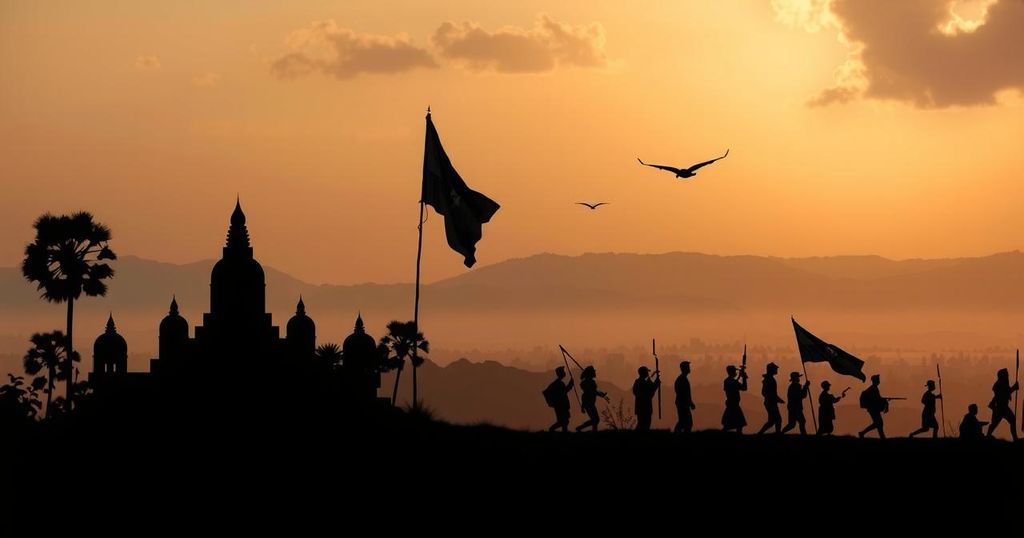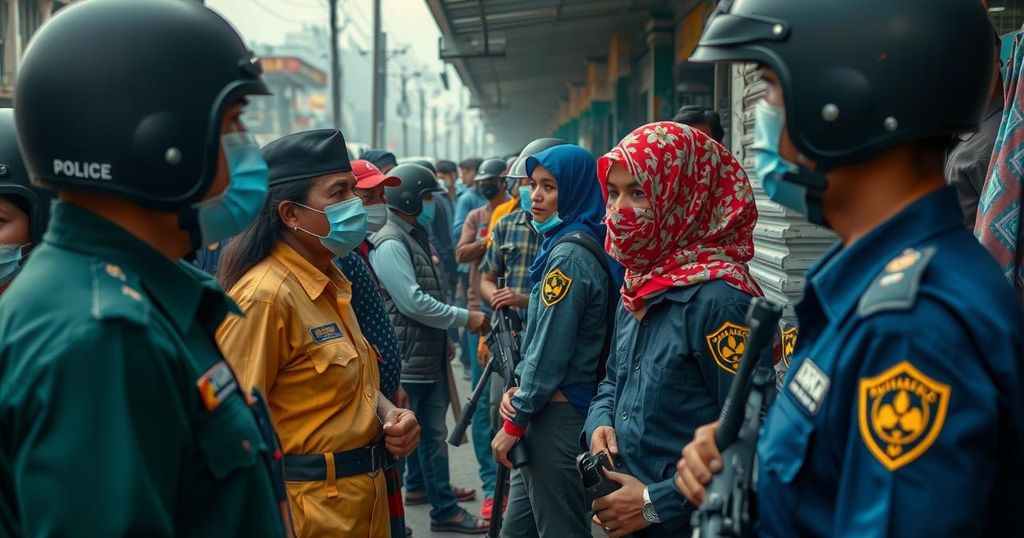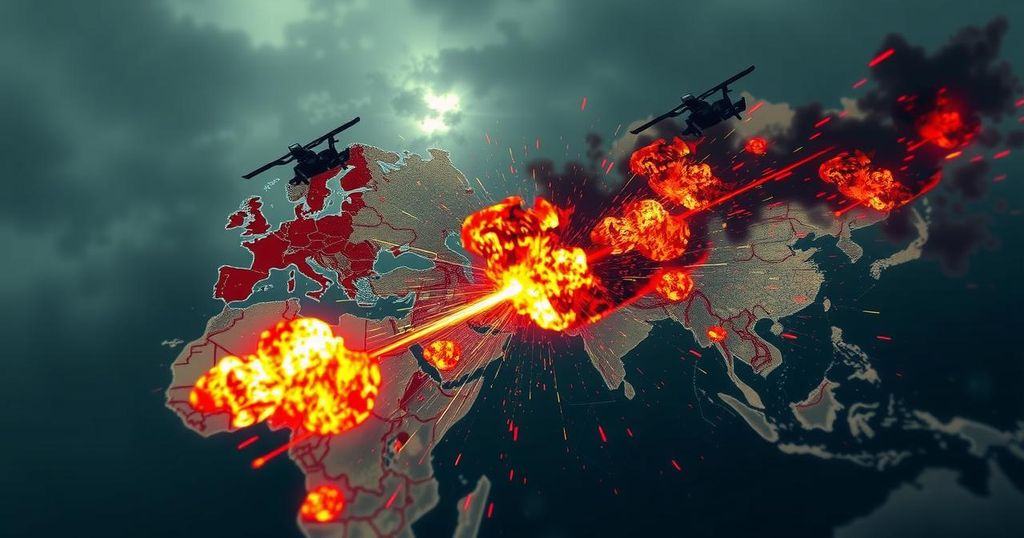Myanmar’s Anti-Coup Forces Intensify Struggle in Mandalay
Anti-coup forces in Myanmar, supported by ethnic armed groups, are intensifying their fight in Mandalay as they aim to oust the military government. This city, experiencing unprecedented violence, is now a focal point for a potential shift in power dynamics. Residents report devastation and losses, particularly emphasizing the humanitarian risks of future military offensives on urban areas. Analysts highlight the coordinated resistance efforts alongside the crucial support from ethnic militia groups. The situation remains precarious with ongoing civilian risks, yet the resistance believes that capturing Mandalay will be pivotal in their revolutionary goals.
In Myanmar, the struggle against the military coup has intensified with anti-coup forces focusing their efforts on Mandalay, the nation’s second-largest city, which is now experiencing an atmosphere akin to a siege. Ethnic armed groups have trained and supported volunteer fighters who are challenging the military’s authority in the region. Many residents, like 47-year-old Tun from Singu, have witnessed unprecedented violence and destruction, prompting them to flee as military air and artillery strikes devastate their towns. After the 2021 military coup that ousted the democratically elected government of Aung San Suu Kyi, areas previously untouched by conflict have become battlegrounds. The military has faced significant defeats from both long-established ethnic militia groups and newly formed pro-democracy forces. The recent seizure of four towns in northern Mandalay has brought the anti-coup coalition closer to the city, which is home to nearly two million individuals. Tun expressed his sentiments about the situation, stating that though the resistance has brought destruction, he supports their efforts against the military. He detailed the loss of his family home due to an airstrike, emphasizing the emotional toll of such devastation. Former university student Pyay, who joined an armed resistance group after the coup, echoed similar concerns about the military’s indiscriminate violence towards innocent civilians, highlighting the use of aerial bombardments against them. The youth-led resistance groups operate under the umbrella of the National Unity Government, a parallel administration formed by ousted lawmakers, often coordinating closely with ethnic armed organizations. Specifically, the Mandalay People’s Defence Force (PDF), working alongside the Ta’ang National Liberation Army (TNLA), has played a pivotal role in these operations. Analysts indicate that the success of such groups is largely attributable to the training and strategic support provided by the TNLA, which has significantly expanded its territories since the start of the conflict. Despite the resistance’s ambitions to push into Mandalay, concerns over the humanitarian consequences of an assault on densely populated urban areas abound. Analysts warn that an attack could result in severe humanitarian crises, citing the risks posed to civilian lives and infrastructure in such environments. International observers, including Amnesty International’s Myanmar researcher, emphasize the necessity for all conflict parties to prioritize civilian protection and mitigate the inherent dangers posed by military offensives in populous centers. The resistance groups maintain that capturing Mandalay is crucial for dismantling the military’s power, with Pyay stating, “If we can take Mandalay, we will be very close to the end of our revolution.” This sentiment reflects the broader ambition of the anti-coup forces as they navigate a dangerous landscape in pursuit of democratic governance and an end to military rule.
The article discusses the ongoing conflict in Myanmar following the military coup that took place in February 2021, which led to widespread civil unrest and armed resistance. Many areas previously unaccustomed to conflict have now become battlegrounds as ethnic militia groups and pro-democracy volunteer fighters unite against the military regime. The capture of towns in northern Mandalay signifies an important strategic move for these anti-coup forces as they move towards the major city. The situation remains volatile, with significant implications for the civilian population caught in the crossfire.
The conflict in Myanmar, particularly in Mandalay, illustrates the intense struggle between anti-coup forces and the military regime. As resistance groups gain ground, the humanitarian implications of their actions raise serious concerns. The resilience of the civilian population paired with the determination of the resistance fighters presents a complex dynamic as the fight for democracy continues amid violence and destruction.
Original Source: www.aljazeera.com








Post Comment